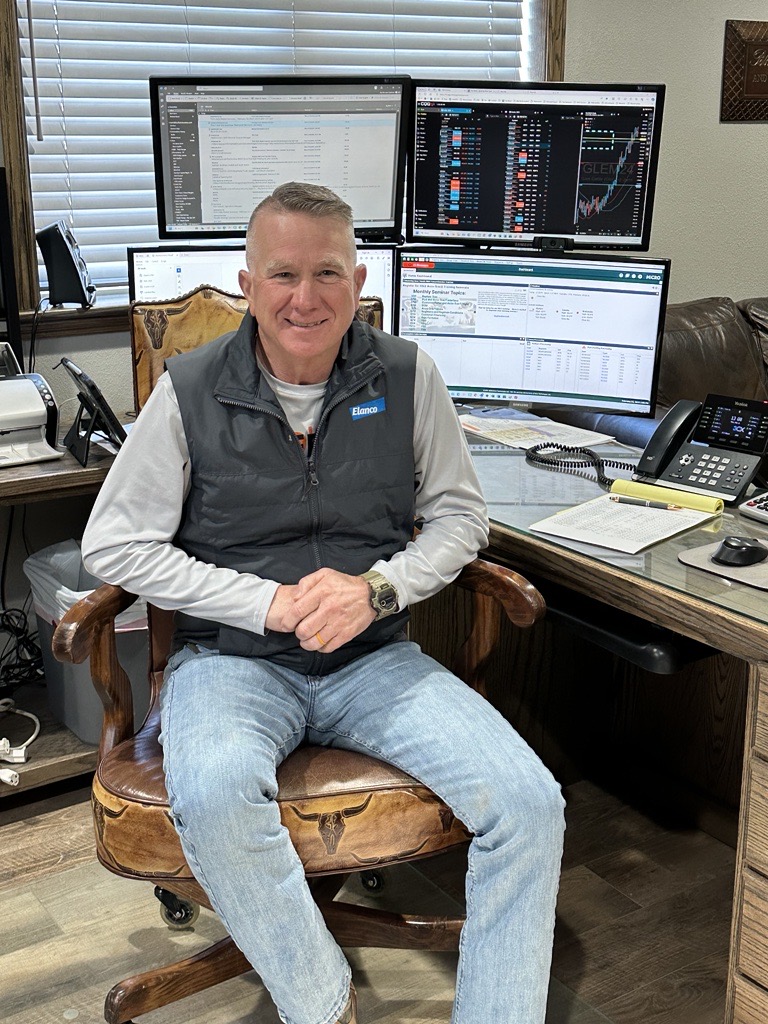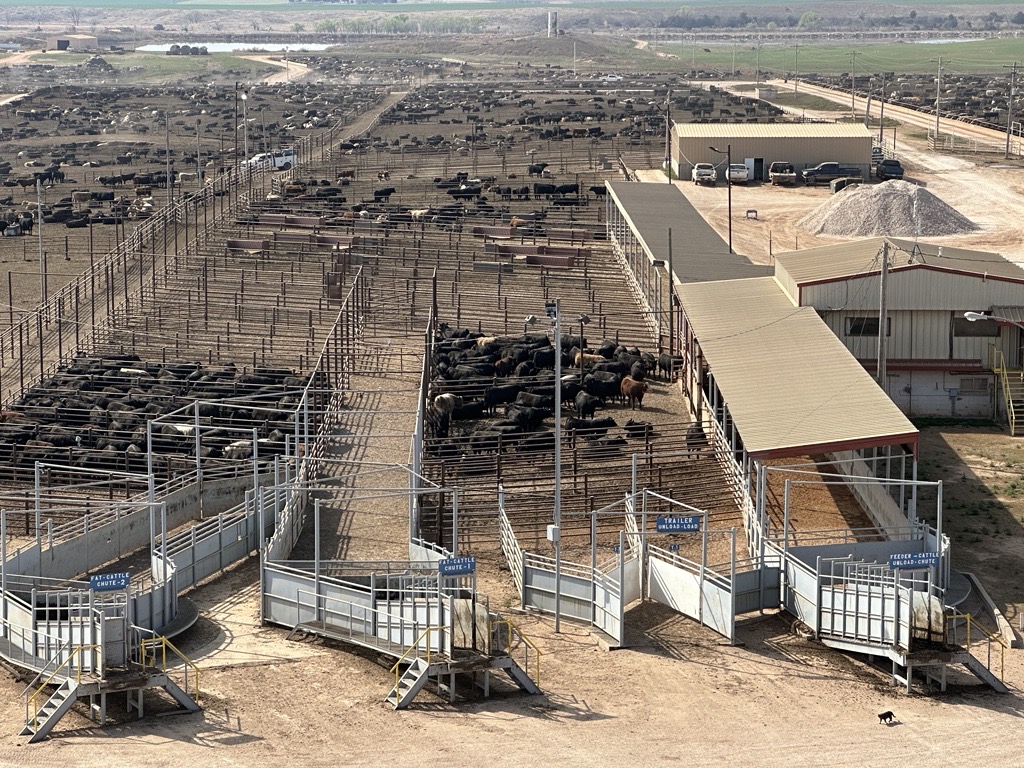In the beef chain, feedlots and feeders have the task of finishing livestock before they head to the processor and eventually the plates of hungry consumers.
Tom Fanning has a front row seat to seeing the process take hold. Fanning has been manager of Buffalo Feeders in Buffalo, Oklahoma, for the past 22 years, and he recently assumed the role of general manager for the Pratt Feeders Group. The group includes Buffalo Feeders, Ashland Feeders in Ashland, Kansas, Ford Feeders in Ford, Kansas, and Pratt Feeders in Pratt, Kansas.
“The vision for Buffalo Feeders and the Pratt Feeders Group from its inception was to focus on custom feeding and adding value to each animal to optimize its value to maximize the profit for each group of cattle,” Fanning said. “Our proximity to major packing plants, and our geographical location are excellent to minimize freight expenses for cattle from Oklahoma, Texas and all points east.”

This helps make Buffalo Feeders, Pratt Feeders, Ashland Feeders and Ford Feeders key locations, Fanning said, adding that this vision has guided the company’s growth and adaptation over the years, leading to its current success. A picture of one of the operations is above.
Staying bullish
Like all aspects of the beef chain, there are challenges, but optimism is always an important trait.
“Despite the inherent risks associated with cattle feeding, such as market fluctuations, weather and operational challenges, we remain optimistic about the future of the industry,” Fanning said. “The strategic location near packing plants continues to provide significant efficiencies in transportation and logistics, making the business model viable.
“The advancements in overall cattle genetics along with new opportunities to sort cattle and market on an individual basis help us offer our customers a unique and individualized experience allowing for maximum performance, market access to the top grid markets in the industry and the ability to manage risk. The ongoing demand for high-quality beef, coupled with innovative management and operational strategies, reinforces our bullish outlook.”
Currently, Buffalo Feeders is a 32,000-head feedyard and typically has a waiting list of customers seeking to utilize the skills of the staff to feed and market their cattle, he said. The operation is supported by 37 employees, involved in feed manufacturing, feed delivery, maintenance, cattle health and administration.
“Buffalo Feeders is proud to be one of the largest non-governmental employers in the county,” Fanning said.
Keys to success
Success is due to two primary factors, he said.
“Amazing loyal customers from across the country and an experienced crew that boasts of over half with 20-plus years of experience, with a dedicated and engaged team to make every individual animal perform to its maximum potential,” Fanning said.
Additional factors include a focus on efficiency in operations, by streamlining processes from milling to feeding to health management, he said. Quality control ensures the health and well-being of the cattle to produce high-quality beef, utilizing sustainable practices in every aspect of the operation. And, he added, the company emphasizes employee engagement to maintain a skilled and motivated workforce.

Challenges
Some of the main challenges are the impact of events beyond feeders’ control, Fanning said. Often they are called “Black Swan” events, which refer to unforeseeable events. Those in recent years have included the Tyson packing plant fire in 2019 at Holcomb, Kansas, COVID-19 and global geopolitical events that create market volatility.
“This leads to a heightened importance of a sound risk management strategy,” Fanning said.
Inflation has also been a challenge because of its impact with rising costs from insurance to interest rates, he said.
In the industry, there are always discussions about consolidations in all sectors of agriculture, but Fanning said capitalism is the best way to run a society.
“Consolidation seems to increase in times of adversity,” Fanning said. “A great way to look at it is to embrace the challenge and the opportunity. When an operation has excellent management and has a strong financial footing, the opportunity to improve the efficiencies and operations will arise. It is important that fair trade practices are intact. It’s crucial to balance these aspects to ensure a healthy, competitive market that benefits both producers and consumers.”
During May, Beef Month is nationally recognized, and it is a source of pride for his group and the industry, he said.
“It’s a time to celebrate the hard work and dedication that goes into producing high-quality beef that consumers enjoy,” Fanning said. “It also serves as a reminder of the industry’s role in feeding America and the global community, reinforcing the importance of continual improvement and innovation. Beef is the best source of protein and vital nutrients for everyone, no matter the stage of life you are in. Stay active and healthy and eat beef.”
About Tom Fanning
Fanning earned his bachelor’s degree in agricultural economics from Oklahoma State University in 1987 and served as an infantry captain in the Army from 1982 to 1992. He completed his master’s degree at Troy State University in 1992. From 1992 to 2001, he was employed by Cargill, where he managed cattle feeding operations across the Texas Panhandle.
Throughout his career, Fanning has held various leadership positions in cattlemen’s organizations at local, state and national levels, including serving as chairman of the Oklahoma Beef Council. He is serving as a director of the Texas Cattle Feeders Association. Under his leadership, Buffalo Feeders has garnered numerous accolades, including the 2019 National Cattlemen’s Beef Association’s Beef Quality Assurance Feedyard of the Year and the 2023 TCFA Feedyard Excellence in BQA.
Dave Bergmeier can be reached at 620-227-1822 or [email protected].




